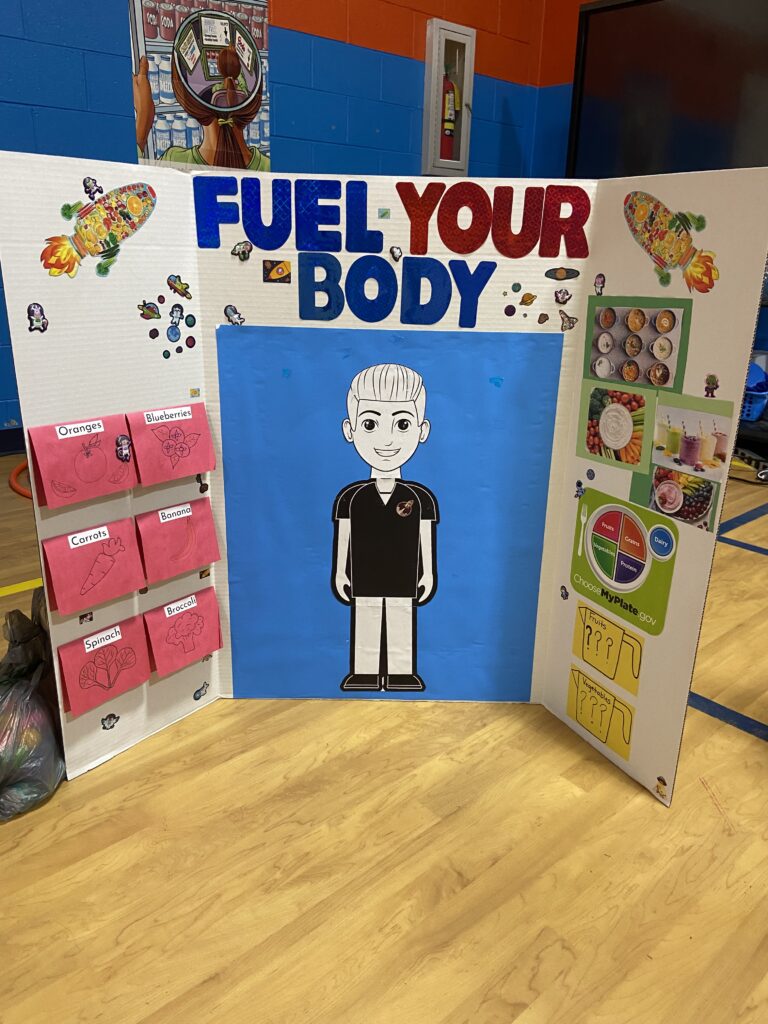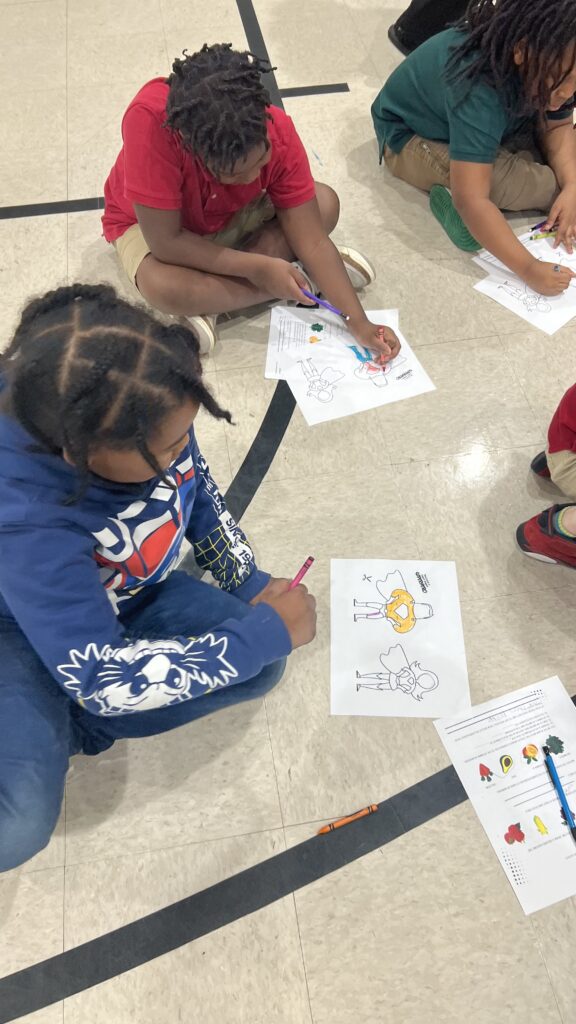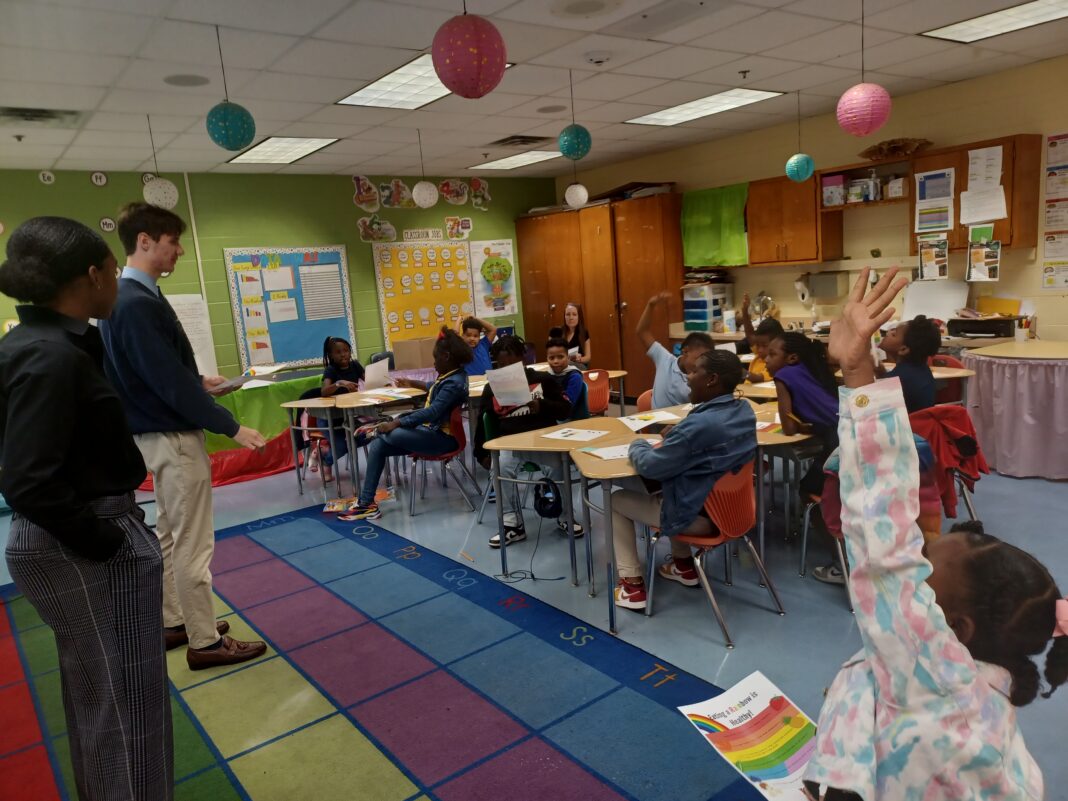This fall, Mercer University public health students taught local third graders about fruits and vegetables through lessons with superhero themes, interactive games and more.
Dr. Rebecca Larson, assistant professor of public health practice in the College of Health Professions, and the 21 undergraduate students in her Public Health Across the Lifespan course teamed up with the Bibb County School District for the nutrition project. The course focuses on communicating public health issues to diverse audiences and people of all ages, including children.
“(Third grade) is a great age,” Dr. Larson said. “They will take what you say and do and do it, because you’re the expert and also because we made it fun for them. We want to try to set these kids up for good eating habits.”
The Mercer students were split into seven teams, and each group developed a 45-minute lesson plan with a script, poster and hands-on activity, as well as an educational handout and recipe card for an easy-to-make snack for the third graders to take home. They created learning objectives that matched the National Health Education Standards and assessment tools to measure the children’s understanding before and after their lessons.
During the months of October and November, the Mercerians visited seven schools in Bibb County, stopping by each three times. Each Mercer student had the responsibility of leading their group’s program once.
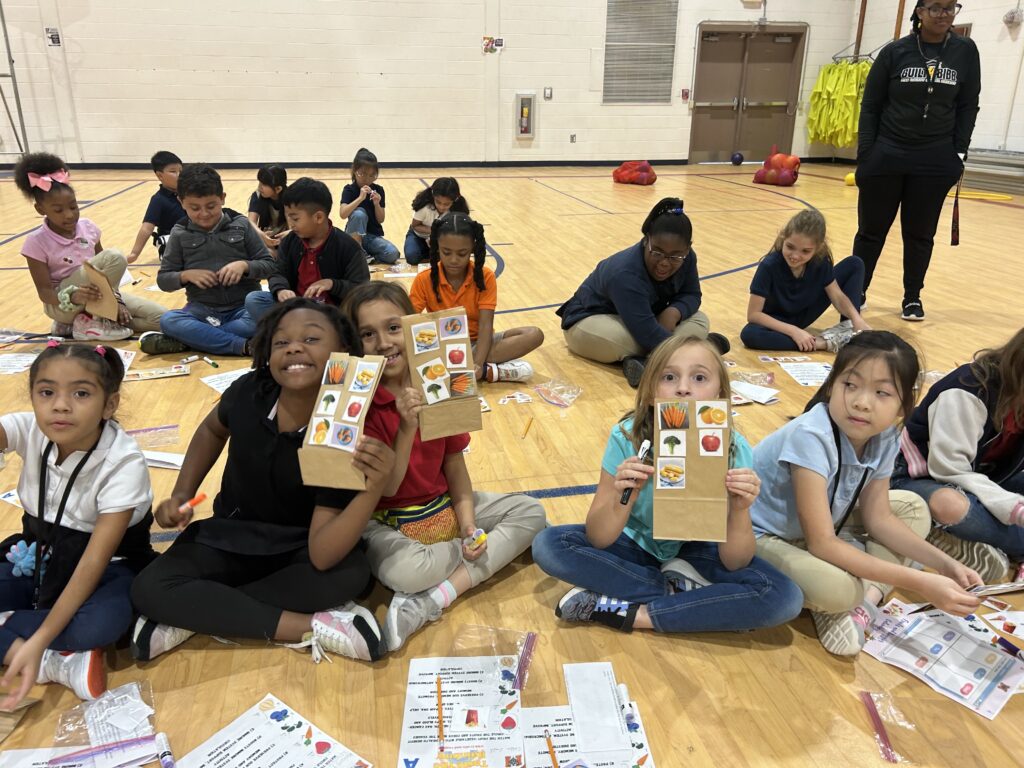
The lessons focused on nutrients, fruits and vegetables, and what they do in the body. The majority of the groups themed their lessons around “eat the rainbow,” referring to incorporating fruits and vegetables in a variety of colors into a diet, and one group created a superhero theme.
“One of the things we talked about was using positive messaging, rather than avoidance messaging. Especially with kiddos, they are more receptive to ‘eat this’ rather than ‘don’t eat this’ messages,” said Dr. Larson, a registered dietician who worked in school systems for many years before coming to Mercer in 2023.
The hands-on activities led by the Mercer students included playing bingo; sorting foods into healthy and unhealthy categories on a posterboard; gluing paper food cutouts onto paper bags to create a healthy meal; and drawing fruits and vegetables and matching them to the parts of the body that they impact.
Cookie Peters, a junior public health major, and her group had the third graders create superheroes based on fruits or vegetables. One child used oranges and vitamin C for her inspiration for a superhero who was super strong and never got sick. Another child combined all the vitamins and minerals to create an ultimate superhero who couldn’t be beat because he didn’t get sick and had a powerful body.
“We taught how eating fruits and vegetables could make you a superhero because it’s so beneficial to your body,” Peters said. “I can tell they really enjoyed the whole superhero theme. We tried to make sure the lesson plan was engaging.
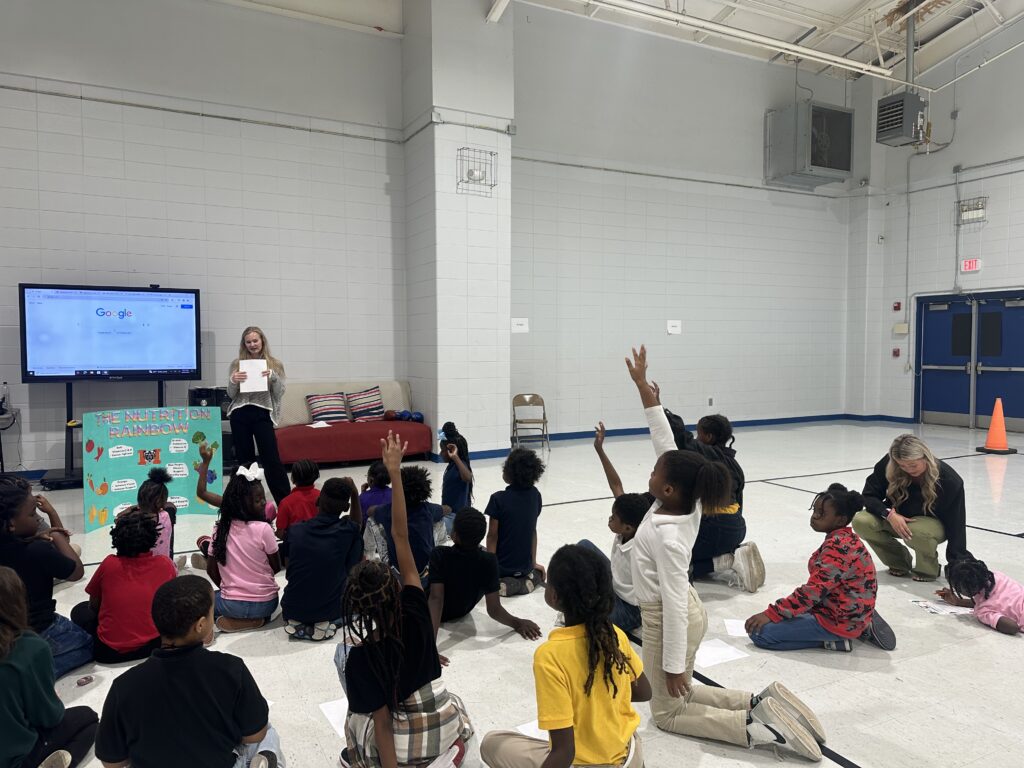
“A lot of kids aren’t meeting that daily recommendation (of fruits and vegetables). It’s so important to instill those habits at an early age.”
Leading a program for younger kids was a first for most of the Mercer students, Dr. Larson said. It was a learning experience as they worked with children of varying abilities. The third graders were engaged and enthusiastic, and end assessments showed that the nutrition lessons stuck with them.
“I was very pleased that (the Mercer students) got to have this experience working with kids. They learned a ton about how to manage kids in the classroom, how to be flexible, and being OK with controlled chaos,” Dr. Larson said. “The communication piece is really important, being able to communicate with audiences that are not their peers and learning to deal with a specific audience. They’re getting to develop a program, but then they get to implement it and assess it.”
Creating a small program like this equips the students to be able to take on larger projects in the future, while also providing them with a real-world experience to list on their resumes. Dr. Larson will continue the project with another class of students in the spring.
“It made me realize I need to eat more fruits and vegetables,” Peters said. “I also realized that teaching methods don’t always work the same way for every kid. It’s important to be adaptable in terms of getting your message across. For someone to want to understand the message really well, you have to make it relatable to them and know what they value.”
